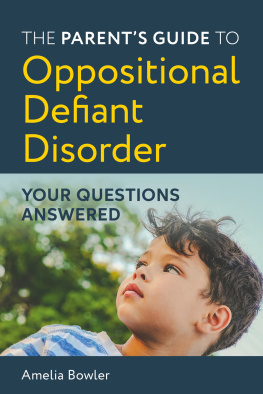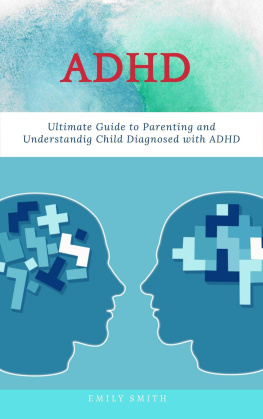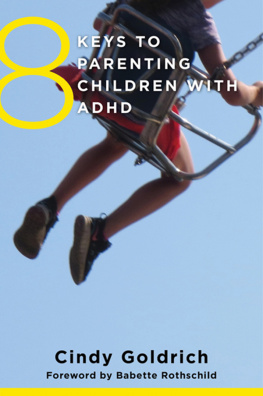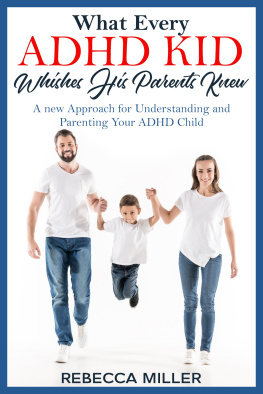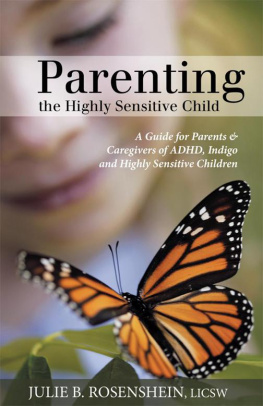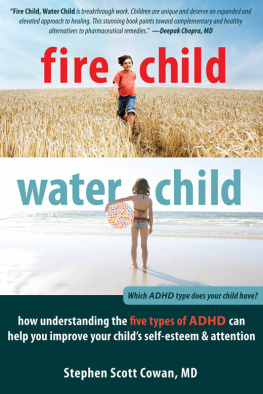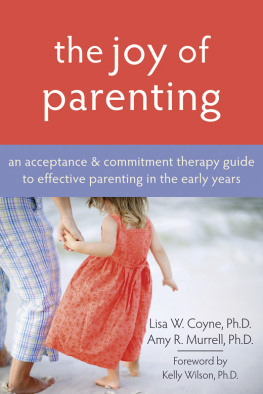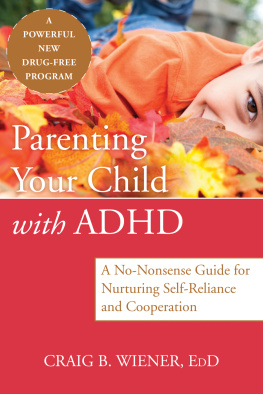Contents

The Parents Guide to
OPPOSITIONAL
DEFIANT DISORDER
Your Questions Answered
AMELIA BOWLER
ILLUSTRATED BY AMELIA BOWLER

Contents
Preface
This book began, years ago, when I looked at the results of a psychological assessment and realised that my own son fit the profile for Oppositional Defiant Disorder (ODD). His psychologist, teachers, and instructors all agreed: He was charming and bright, but disruptive, prone to conflict with other children, and hard to manage.
I started digging for some answers. I read textbooks, research papers, public health websites, and personal stories. The experts seemed to be saying that my sons behavior was caused by some kind of brain damage; or perhaps it was due to my own failings as a parent. Other parents told me to remove certain ingredients from his diet or try a range of supplements and oils. Psychologists recommended treatments such as parent training and psychotherapy.
Meanwhile, I was already a Board Certified Behavior Analyst, and my job description included teaching parents how to address problem behavior. I knew how to give clear instructions and positive feedback, maintain consistency, and build motivation. I prided myself on being a dedicated, affectionate, and creative parent. Still, I was clearly missing something. I could help other families but I couldnt help my own.
In other words, the label Oppositional Defiant Disorder only told me what I already knew: My son was frustrated, angry, and struggling to follow the rules. There was nothing to tell me what to do next, and no map to tell me what my child needed most. I felt alone and discouraged, as if I was standing in the centre of a maze, trying to lead my family out.
I wrote this book to help other parents who have found themselves in that same difficult maze. In my research I realized that for each family the answer will be a little bit different, even if the behavior looks similar. I learned about how shame, despair and stress can shape behavior, both for parents and children. I learned that there is no single path to treating the symptoms of ODD, because there is no single cause.
After sifting through the most up-to-date research and looking at disruptive behavior from a physiological, psychological, neurological, social, and behavioral perspective, I was able to draw five possible maps that parents can use to find help. In this book, I have described:
what we know about these maps from the best available research evidence
how to use each of the maps to find the possible causes of disruptive behavior
practical ideas that parents can try straightaway
suggestions for where to find professional support in this area of need.
PART 1
WHAT IS OPPOSITIONAL
DEFIANT DISORDER?
C HAPTER 1
What Does It Mean to Have
a Diagnosis of Oppositional
Defiant Disorder?
Oppositional Defiant Disorder: Whats in a name?
The very first thing to understand about a diagnosis of ODD is that the term Oppositional Defiant Disorder describes what is happening on the outside. The diagnosis does not point to a specific emotional or cognitive problem.
If your child has been tested, and diagnosed with ODD, your psychologist, psychiatrist, or pediatrician is simply agreeing that your childs behavior is more disruptive, angry, and unpleasant than they would typically expect. The behavior you are seeing matches a description in a diagnostic manual. The label Oppositional Defiant Disorder is a quick way for mental health professionals to summarize your childs behavioral symptoms, and note that they are causing problems.
And thats all.
What are the requirements for a diagnosis of Oppositional Defiant Disorder?
A psychiatric diagnosis such as ODD should only be given by a qualified mental health expert, such as a psychiatrist, a psychologist, or a general medical practitioner with appropriate training. Accordingly, this book should not be used for the purposes of self-diagnosis.
The requirements for a diagnosis of ODD will vary, depending on where you live. ODD is listed in both the World Health Organizations International Classification of Diseases for Mortality and Morbidity Statistics (ICD-10) There are some subtle differences between the two descriptions, but they have some key factors in common. Both diagnostic criteria describe:
a pattern of disobedience that begins in childhood
defiant and angry behavior, especially toward adults in authority
an easily offended, irritable temperament
a tendency to blame others or carry out retribution.
A close reading of the full diagnostic criteria suggests that a child who is diagnosed with ODD may be struggling on a number of different fronts, including emotional self-regulation, self-control, and interpersonal skills. You may recognize one particular area of need in your own child, or you may see that most of your childs struggles are concentrated in one particular area, such as:
Difficulty regulating intense emotions. From the outside, these children often seem to have an angry and irritable mood. They appear to be easily annoyed and quickly lose their temper when things dont go their way. Emotionally, these children are very sensitive, but they have difficulty expressing their feelings to others. They may express sadness, worry, and even loneliness in a hostile and abrupt way that does not attract much sympathy.
Difficulty moderating goal-directed behavior. From an adult perspective, these children are considered argumentative and defiant. They seem almost immune to punishment or scolding, ignoring rules and warnings as they persist toward their goals. These children tend to be very strong-willed and independent, even impulsive or reckless.
Difficulty cooperating with other people. Sometimes described as vindictive or aggressive, these children struggle to problem-solve and negotiate in a socially acceptable way. In disagreements, these children are more likely to use physical force or simple refusal to get their own way. They may have difficulty understanding the perspective of other people, so instead of resolving interpersonal problems with compromise or forgiveness, they may resort to lashing out or escalating the conflict.
Understanding psychiatric labels
When it comes to mental health and behavior, the language of diagnosis can be misleading. While the medical field can often link a symptom with a particular injury or imbalance, a psychiatric diagnosis does not imply a particular biological problem. Although the field of mental health often speaks in the language of diseases and treatments, a behavioral disorder such as ODD does not point to a specific physical problem.
Saying My child has Oppositional Defiant Disorder is not the same as saying My child has a specific medical condition with a known cause. It is more like saying My childs arm is often swollen or My daughter has a persistent rash on her skin.
Furthermore, words like oppositional and defiant are not medical terms; they are subjective. Babies are not considered defiant and neither are most adults. A child can only be considered oppositional when confronted with an adult who expects to be obeyed. There is no known medical disorder that compels a child to do the opposite of what is expected, so terms like oppositional and defiant tell us more about how parents and teachers are feeling than about the child who refuses to cooperate.

